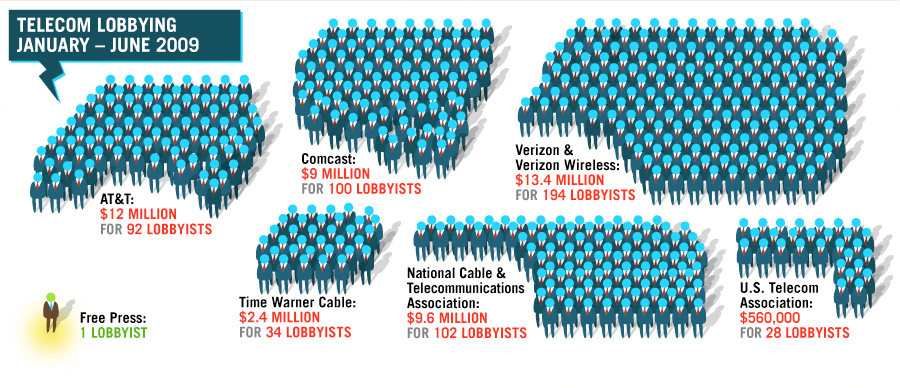BendBroadband, a small provider serving central Oregon, breathlessly announced the imminent launch of new higher speed broadband service for its customers after completing an upgrade to DOCSIS 3. Along with the launch announcement came a new logo of a sprinting dog the company attaches its new tagline to: “We’re the local dog. We better be good.”
What some BendBroadband customers didn’t realize was that dog comes with a leash.
“The new speeds sound great, right until you read the fine print and discover the awful usage allowances they attach to them,” writes Seth, a Stop the Cap! reader. “That’s Bend (Over) Broadband.”
BendBroadband plans range from 8Mbps service for $36.95 a month ($46.95 broadband-only), 14Mbps service for $44.95 a month ($54.95 broadband-only), and a forthcoming Gold 25Mbps plan for $54.95 a month ($64.95 broadband-only). The 14Mbps service represents a speed increase for their current Silver plan. All of these plans have a 100GB usage allowance, with a $1.50/GB overlimit penalty.
A new Platinum plan will offer 60Mbps service for $89.95 a month ($99.95 broadband-only), yet only incrementally bumps the usage cap up by 50GB, to 150GB per month.
Company officials seemed pleased with themselves.
“Who would of believed ten years ago that we would have these types of speeds available?” said Frank Miller, the company’s Chief Technology Officer. “60Mbps…that’s one fast puppy!”
“That dog (logo) has broadband rabies and needs to be put down,” replies Seth’s wife Angelica, who telecommutes and does most of her work from home.
“Central Oregon can be wowed by the speed, but what good is it if you can’t use it without running into their usage caps and limits,” she asks.
“I’d pay for the premium tiers and get on a waiting list today if they did away with the usage caps. There is no way I am paying to support a company that sticks usage caps on their customers and makes me waste time doublechecking how much I’ve used this month,” she said.
Seth and Angelica have taken a pass on BendBroadband’s dog show and are sticking with the local phone company’s DSL service until something better comes along.
“The speed isn’t the best, but at least you can use the service and not have to worry about it,” Seth writes.


 Subscribe
Subscribe








